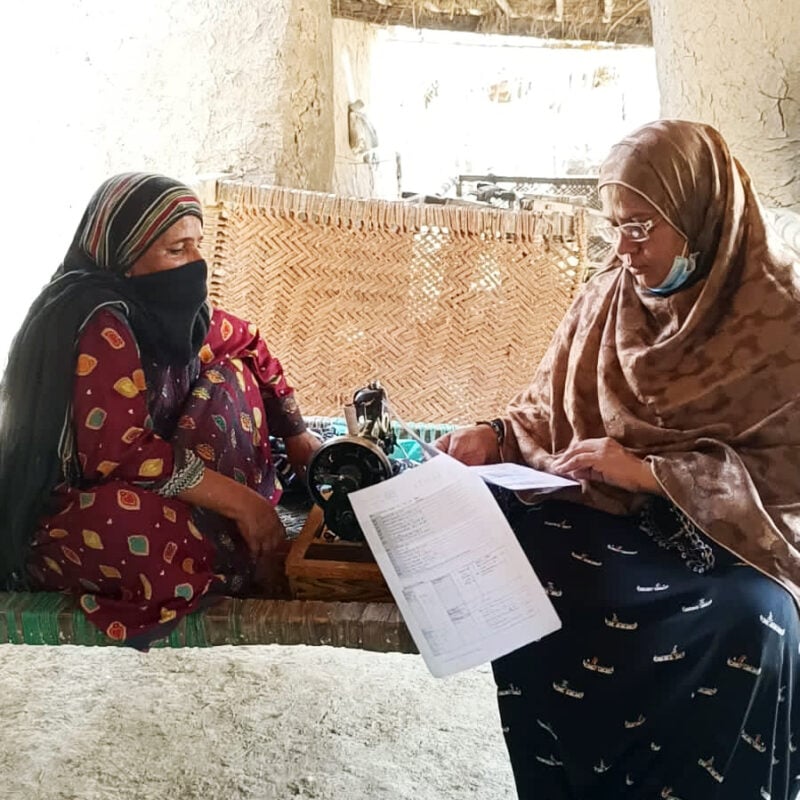Building Resilience and Addressing Vulnerability to Emergencies in Pakistan (BRAVE) Monitoring, Evaluation and Learning (MEL)
Building Resilience and Addressing Vulnerability to Emergencies in Pakistan (BRAVE) Monitoring, Evaluation and Learning (MEL)
Project Objectives
Building Resilience and Addressing Vulnerability to Emergencies (BRAVE) is a £97m climate resilience programme funded by FCDO Pakistan. It aims to save lives and improve the coping capacity of the most vulnerable people, while increasing the ability of the Government of Pakistan (GoP), civil society, and communities to mitigate and respond to the effects of climate change.
FCDO contracted Integrity – working with partners GLOW and the Institute of Social and Policy Sciences (I-SAPS) – to deliver independent monitoring, evaluation, and learning (MEL) services for BRAVE. We provide innovative, context-aware, and gender equality, disability, and social inclusion (GEDSI)-responsive MEL, third-party monitoring (TPM), and demand-led research and MEL services. The overall approach fosters learning across climate resilience and humanitarian interventions, and generates evaluative evidence to enhance impact. By integrating MEL, the process ensures that decision-making is grounded in robust evidence, driving accountability, adaptation, and continuous improvement.
Project Outputs
The BRAVE MEL Project Management Unit provide technical support, coordinating with BRAVE Implementing Partners (IPs), and have been active in risk management and supporting programme adaptation, particularly to ensure that the team was able to pivot to support FCDO BRAVE team’s humanitarian response to flooding across Pakistan in mid-2025.
Evaluation
We are undertaking a performance evaluation of BRAVE over three cycles (baseline, midline and endline) between 2025 and 2028. The objectives of the evaluation are to: 1) Generate independent, evaluative evidence on the performance of BRAVE; 2) facilitate evidence-informed decision-making related to adaptations for current BRAVE programming and design of future programming, and 3) build the evidence base on what works (and how) and what does not work (and why) to enhance climate resilience in Pakistan. The baseline evaluation was conducted between June and October 2025.
TPM
Our TPM provides independent oversight to enhance accountability, expand coverage, and drive learning. We ensure that the programme delivers effectively, aligns with its objectives, and reaches intended beneficiaries in a timely and quality assured manner. Through systematic monitoring and independent validation, TPM promotes transparency and credibility in implementation. Our tailored, component-specific approach meets the distinct monitoring needs of BRAVE interventions. Our beneficiary feedback survey instrument was specifically designed to examine humanitarian interventions implemented by IPs.
Demand-Led Evidence and Learning in 2025
Climate Resilience Literature Review: This review synthesised the existing evidence base in areas relevant to BRAVE including key gaps and priorities for future research. Our report highlighted gaps in local-level data, limited integration of gender and disability perspectives, and underdeveloped evidence on nature-based solutions. It identified future research priorities include climate finance connected to loss and damage; local governance mechanisms; and the role of social protection in building resilience.
Political Economy Analysis (PEA): A review of documents addressed five core research questions, including mapping key actors and institutions, examining power and accountability dynamics across governance levels, and identifying incentives and barriers to strengthening climate resilience. The PEA covered all provinces with three district-level deep dives.
FCDO has approved our concept note for a Value for Money analysis: The proposed review will develop VfM framework for the programme and assess VfM across BRAVE interventions. The annual analysis is expected to guide programme learning and inform future investment decisions.
